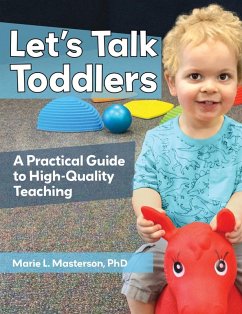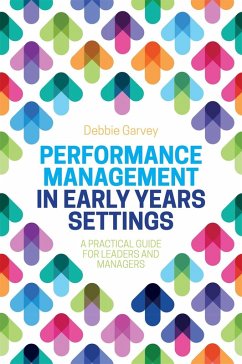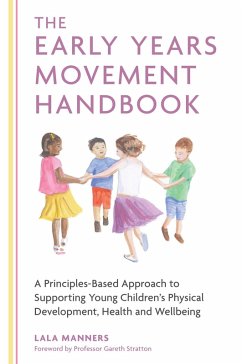
Practical Solutions to Practically Every Problem (eBook, ePUB)
The Survival Guide for Early Childhood Professionals
Sofort per Download lieferbar
18,95 €
inkl. MwSt.

PAYBACK Punkte
9 °P sammeln!
An encyclopedic how-to guide for the universal early childhood program problems.Practical Solutions to Practically Every Problem attempts to provide solutions to every possible problem faced by early childhood teachers-before teachers encounter them. This classic resource has been updated to focus on current issues faced by educators, including teaching twenty-first century life skills, technology, and cultural responsiveness. This easy-to-use guide gives you quick practical help, now!Educators will save time and energy with over eight hundred solutions to two hundred problems, including:Daily...
An encyclopedic how-to guide for the universal early childhood program problems.
Practical Solutions to Practically Every Problem attempts to provide solutions to every possible problem faced by early childhood teachers-before teachers encounter them. This classic resource has been updated to focus on current issues faced by educators, including teaching twenty-first century life skills, technology, and cultural responsiveness. This easy-to-use guide gives you quick practical help, now!
Educators will save time and energy with over eight hundred solutions to two hundred problems, including:
- Daily dilemmas and classroom issues
- Partnering with families to raise happy children
- Dealing with problematic behaviors from co-workers
- Learning to take care of yourself to prevent burn-out
Steffen Saifer, EdD, a former early childhood teacher and Head Start director and trainer, is currently an international consultant and writer based in Spain. He has worked on projects for the Open Society Foundation, The World Bank, and UNICEF, in many countries including Bangladesh, Russia, and Zimbabwe. Dr. Saifer works with programs on culturally responsive curriculum development and implementation and with universities to develop graduate programs for ECD teachers, administrators, and leaders. When in the United States, Saifer resides in Portland, Oregon
Dieser Download kann aus rechtlichen Gründen nur mit Rechnungsadresse in A, D ausgeliefert werden.













